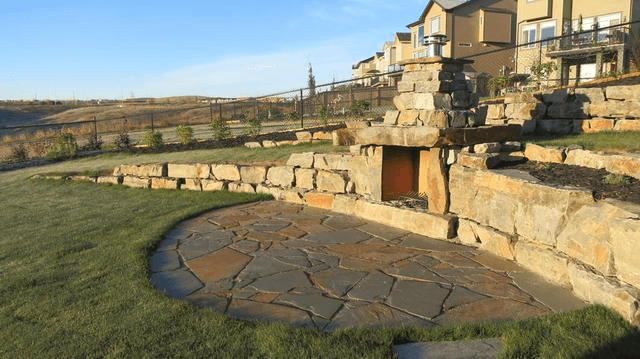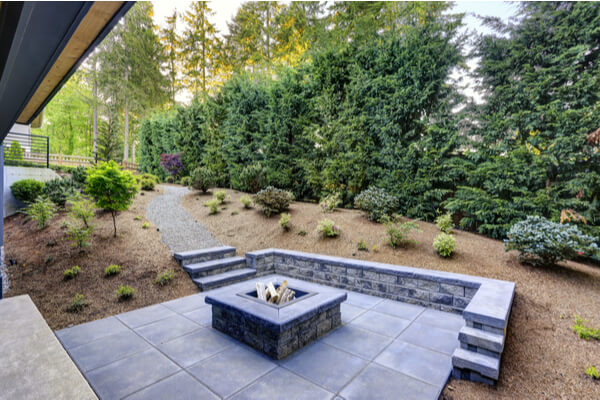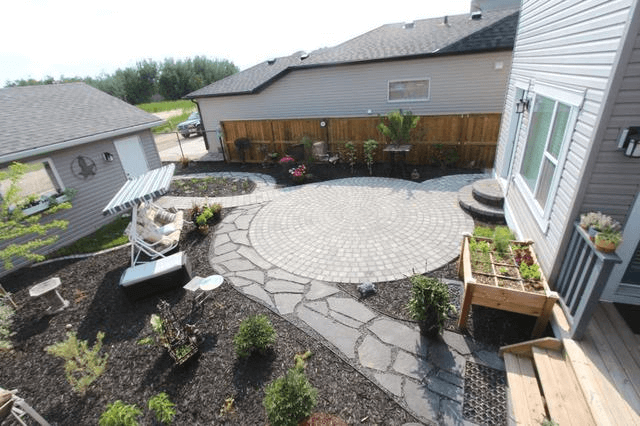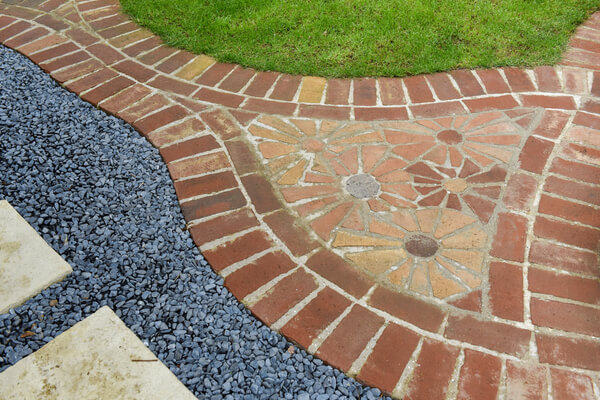Your exterior landscaping is crucial to your home’s curb appeal. Keeping up with your lawn, flowers, trees, and shrubs are all important but you can’t forget about your walkway and patio environment. Taking up a good chunk of your property, your walkways and patios catch the eyes of passersby and have an impact on your home’s overall appearance and function.
Interlocking stone is a popular choice for walkways and patios as it is aesthetically pleasing and affordable. Learn about what interlocking stone is, the different types, and the benefits below.
What is Interlocking Stone?
Interlocking stone is a combination of pieces, commonly referred to as pavers, placed next to each other to create a walkway, garden path, or patio. By laying each piece independently of each other, unique patterns or designs are able to be incorporated into the final product.
Types of Interlocking Stone
The most common types of interlocking stone are natural stone, brick, concrete, and resin. Depending on where you are laying your pavers, one material may perform better than another. Be sure to consult with an interlocking company on what’s best for your yard.
-
Natural Stone

Image courtesy of Assiniboine Lights & Landscapes
Natural Stone is the most expensive out of the bunch. Natural stones preserve their natural colour and can withstand strong weather. They are low maintenance and don’t need to be cleaned very often. Natural stone is not used in high-traffic areas as it can crack under too much pressure. Typically, natural stone is purchased in a patio slab style (larger pieces) and spread out for a walkway.
-
Brick
Brick pavers are available in a variety of colours and are typically made from concrete and clay. They are strong, durable, and stain-resistant – perfect for any high-traffic area. Additionally, brick pavers can be laid with gaps to allow for drainage.
-
Concrete Pavers

Similar to brick, concrete pavers are available in a variety of colours and styles. Concrete is also just as durable as brick pavers and is often purchased in a colour to mimic a brick paver, as it’s a cheaper alternative.
-
Resin Pavers
Resin Pavers are a lightweight and easy-to-install alternative to the above options. Rather than being manufactured in individual pieces, resin pavers are almost like a cookie-cutter. To install, you simply tap the piece into the ground with a mallet. It will sink into the ground, giving the appearance of paving stones over time. Resin pavers are popular for homeowners in colder climates, as they can be pushed back into the ground after being brought up by the colder weather, rather than having to replace or replace individual pavers. They are cheaper than other options and are quite durable and versatile.

Image courtesy of Assiniboine Lights & Landscapes
Assiniboine Lights & Landscapes, operating out of Calgary, specializes in installing paving stone patios. As you can see from the photo above of their work, working with paving stones allows for complete customization. In this case, the patio tiles were laid in a unique circle pattern and accompanied by a beautiful natural stone walkway. Check out more of their amazing work here!
Below are the average costs of interlocking stone services across different cities in Canada:
| City | Average | Minimum | Maximum |
| Barrie | $5,189 | $1,000 | $10,000 |
| Calgary | $21,386 | $350 | $50,000 |
| Hamilton | $1,800 | $200 | $5,000 |
| Oshawa | $2,918 | $200 | $13,500 |
| Ottawa | $8,807 | $100 | $50,000 |
| Toronto | $11,021 | $100 | $50,000 |
| Vancouver | $22,000 | $13,000 | $25,000 |
*Costs based on 2,995 verified Canadian homeowner reviews as of March 2022

As an alternative to a wooden deck, stone decks and patios are much more durable, lower maintenance and offer an eye-catching appearance. With a variety of options available, they can be constructed to your liking and offer your yard a complete makeover. If you’re interested in updating or installing outdoor interlocking this spring, get connected with interlocking professionals today.
